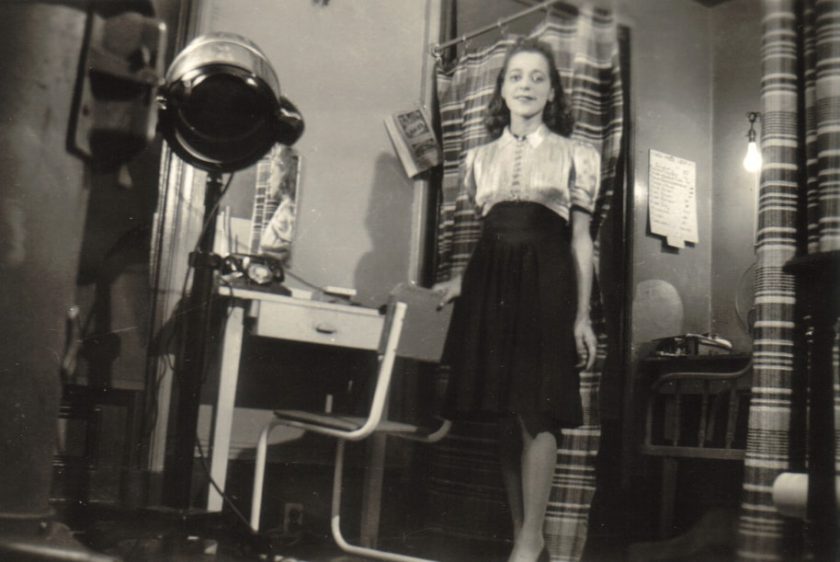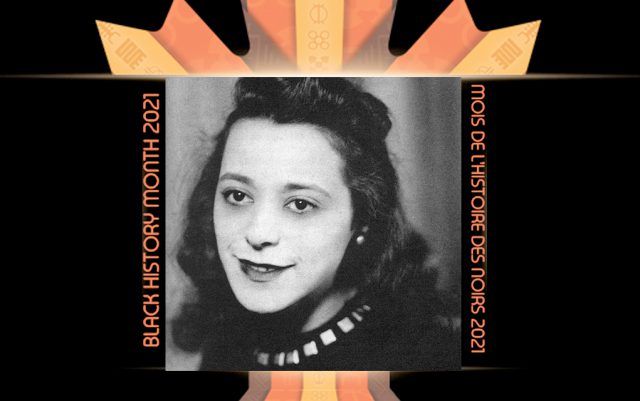Viola Davis Desmond (1914–1965) was born in Halifax, Nova Scotia.
She was an African-Canadian who ran her own beauty parlor and beauty college in Halifax. On November 8, 1946, while waiting for her car to be repaired, she decided to go see a movie in the Roseland Theatre in New Glasgow. She refused to sit in the balcony, which was designated exclusively for Blacks. Instead, she sat on the ground floor, which was for Whites only. She was forcibly removed and arrested.

Viola was found guilty of not paying the one-cent difference in tax on the balcony ticket. She was sentenced to 30 days in jail and paid a $26 fine. The trial mainly focused on the issue of tax evasion and not on the discriminatory practices of the theatre. Dissatisfied with the verdict, the Nova Scotia Association for the Advancement of Coloured People, with Viola’s help, took the case to the Supreme Court of Nova Scotia. The conviction was upheld.

Eventually, Viola Desmond settled in New York where she died.
More recently, on April 15, 2010, the province of Nova Scotia granted an official apology and a free pardon to Viola. Lieutenant-Governor Mayann Francis, the first Black person to serve as the Queen’s representative in the province of Nova Scotia, presided over a ceremony in Halifax and exercised the Royal Prerogative of Mercy to grant a free pardon to her. Viola’s 83-year-old sister, Wanda Robson, was there to accept the apology. Premier Darrell Dexter also apologized to Viola’s family and all Black Nova Scotians for the racism she was subjected to in an incident he called unjust. In 2016, Finance Minister Bill Morneau and the Bank of Canada governor Stephen Poloz announced that Viola will be featured on the $10 bill, making her the first Canadian woman to be featured on a Canadian banknote.
Long Road to Justice – The Viola Desmond Documentary
Heritage Mintue: Viola Davis Desmond
Le Mois de l’histoire des Noirs: Viola Davis Desmond
Viola Davis Desmond (1914-1965) est née à Halifax, en Nouvelle-Écosse. Afro-Canadienne, elle a exploité son propre salon de beauté ainsi que son collège de soins de beauté à Halifax. Le 8 novembre 1946, en attendant que sa voiture se fasse réparer, elle a décidé d’aller voir un film au Théâtre Roseland de New Glasgow. Refusant de s’asseoir au balcon, section réservée aux Noirs, Viola s’est installée au parterre, section réservée aux Blancs. Elle a été enlevée de force et arrêtée.
Viola a été déclarée de ne pas avoir payé la différence d’un cent de la taxe sur le billet du balcon. Elle a été condamnée à 30 jours de prison et à une amende de 26 $. Le procès a porté principalement sur la question de fraude en matière de taxe et non sur les pratiques discriminatoires du cinéma. Insatisfaite du verdict, la Nova Scotia Association for the Advancement of Coloured People (association pour l’avancement des gens de couleur de la Nouvelle-Écosse), avec l’aide de Viola, en a appelé de la décision devant la Cour suprême de la Nouvelle-Écosse. La déclaration de culpabilité a été confirmée.
Viola Desmond a fini par s’établir à New York, où elle est décédée.
Le 15 avril 2010, la province de la Nouvelle-Écosse a présenté à Viola des excuses officielles et un pardon absolu. La lieutenante-gouverneure de la Nouvelle-Écosse, Mayann Francis, la première personne de race noire à représenter la reine dans la province, a présidé une cérémonie qui a eu lieu à Halifax, et a exercé la prérogative royale de clémence qui a accordé à Viola le pardon absolu. La sœur de Viola, Wanda Robson, âgée de 83 ans, était présente pour accepter les excuses. Le premier ministre Darrel Dexter a également présenté des excuses à la famille de Viola et à tous les Néo-Écossais de race noire du racisme dont elle a été victime dans une affaire qu’il qualifie d’injuste. En 2016, le ministre des Finances, Bill Morneau, et le gouverneur de la Banque du Canada, Stephen Poloz, ont annoncé que le portrait de Viola figurerait sur le billet de 10 $, faisant d’elle la première Canadienne à figurer sur un billet de banque canadien.






